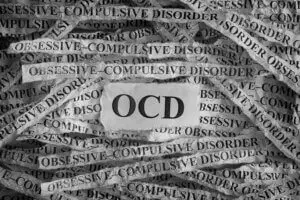Mental Health and the Church: A Look at Ways the Church Can Promote Mental Health
August 24, 2022

A plethora of mental health definitions exist. There’s even a basic definition of “an absence of a mental disorder,” proving the one thing we can all agree on is it is difficult to define mental health. This speaks to the complexity of the Lord’s creation and how we are made in His image.
The American Psychiatric Association states mental health is “the effective functioning in daily activities resulting in productive activities (work, school, caregiving), healthy relationships, [and the] ability to adapt to change and cope with adversity.” In addition, a compilation of resources cite mental health as demonstrated through realizing one’s potential, feelings of self-worth, and community contributions as well as intellectual, emotional, and spiritual development. Mental health is the foundation of these characteristics and a crucial element for meaningful participation in society.
In contrast, the American Psychiatric Association defines mental illness as “changes in emotions, thinking, or behavior, or a combination of these.” Mental illnesses can be mild to severe and may take on many forms; however, to meet the criteria for a mental illness, the symptoms must cause significant distress in life domains and occur for an extended and specified amount of time. Significant mental illness may require hospitalization and varied treatment modalities, including medication.
Although we all experience the ups and downs of mental health, temporary valleys of mental health may be related to stressful events, such as the loss of a loved one or other life events. These do not require professional intervention. It is important to note there is no single cause of mental illness but more so a combination or range of variables, including biology, environmental exposure, genetics, and life experiences that may result in mental illness.
How Does God See Our Mental Health?
The Bible speaks about mental health as it addresses our thoughts, feelings, and behaviors as well as our hearts and souls. The concept of mental health is integral in all of Scripture. In fact, Jesus said the greatest commandment states, “Love the Lord your God with all your heart and with all your soul and with all your mind” (Matt. 22:37).
The Lord cares about our mental health because we matter to Him, and He desires to be intimate with our thoughts and feelings through prayer. He provides for our mental health through the Holy Spirit, who is our comforter and counselor. The Lord provides hope through support systems, godly Christian mental health professionals, and medications as needed when our mental health suffers.
Scripture offers examples related to mental health that indicate self-care can be both physical and mental. Paul acknowledged physical exercise as profitable (1 Tim. 4:8) and encouraged Christ’s followers to maintain a positive thought life (Phil. 4:8), while Jesus took several respites from His demanding time on earth.
As a church body, it is important to promote positive mental health because it allows people to realize their full potential in their relationships with God, others, and their communities. Positive mental health allows individuals to serve, minister, and evangelize effectively.
The Church’s Response
As followers of Christ, we are to share the hope we have in the knowledge of the restoration of the world through Jesus Christ (Col. 1:19–20). God also commands us to love our neighbors. Those with mental health struggles require us to address the uncomfortableness of the often-perplexing nature of the mind, body, and soul. As Christians, there is a common propensity to fear when ministering to those experiencing mental health struggles, and if not thwarted, this attitude can exacerbate the marginalization of those with mental health struggles in and out of the church body.
The church can use the following practices to promote mental health:
- Provide mental health education as a method to reduce stigmatization.
- Become a trauma-informed care church by realizing the widespread impact of trauma, understanding the pathways to recovery, recognizing the signs and symptoms of trauma, responding by fully integrating knowledge into practices, and resisting re-traumatization.
- Cultivate certified Mental Health First Aid practitioners in the church. Click here for information on Mental Health First Aid trainings offered through WMU.
- Equip members to lead and champion mental health initiatives within the church.
- Ensure the church provides a resource website for trustworthy mental health providers in the area who subscribe to sound Christian theology.
Dr. Pam Whitaker, EdD, LMHC, CCTP, serves as senior vice president of program development at One More Child. As a Licensed Mental Health Counselor serving children and families for many years, she has witnessed the value of sound mental health that has provided helpful navigation through the stressors of life, resulting in personal growth and spiritual development.
Disclaimer: The information shared on this page is not meant to diagnose or treat a mental health condition. We encourage you to follow up with your health-care provider and seek a mental health professional for individual consultation and care.























